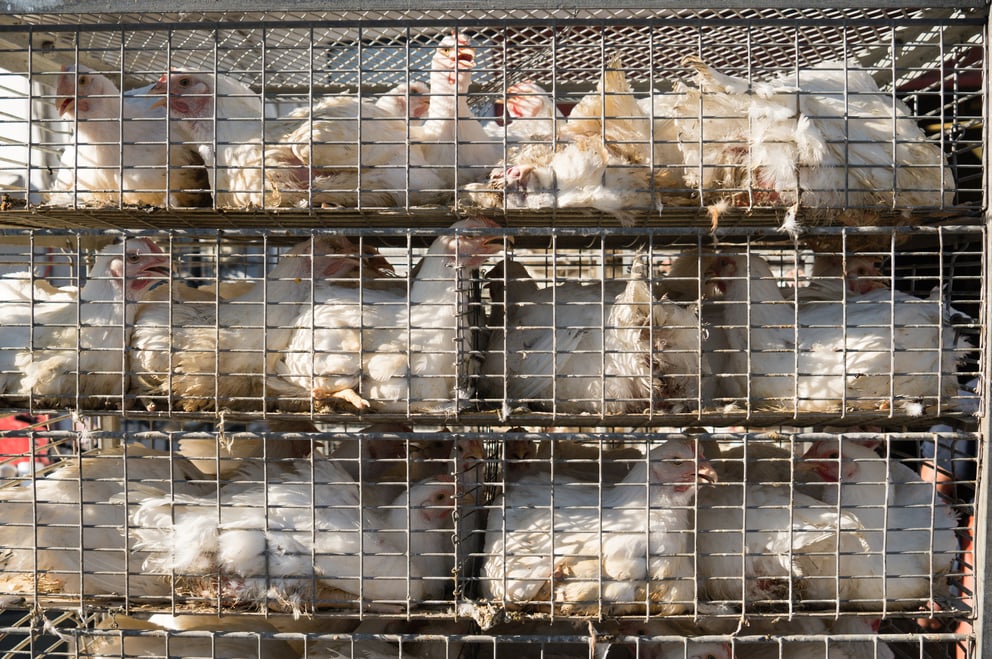
Chicken Feathers Waste Management 🐔 – Proper Disposal And Treatment
Chicken Feathers Waste Management 🐔: Every industry that you can think of in this world produces waste. The poultry industry, in particular, is no exception. Waste in the poultry includes the birds’ excrement, bedding materials, and deceased birds on the farm.
But, aside from that, there is also chicken feather waste. They can create quite a number of environmental problems if left unchecked. Is there any way to manage and dispose of them properly? Can it have a new life? Read on to learn more.
>Download Now: Free PDF Business Owners Guide To General Waste Bin Services
A Bit About Waster
Before I discuss the chicken feathers waste management topic, let me share with you more information about Waster.
We here at Waster provide you with innovative solutions for you and your business’s waste management and recycling needs. Furthermore, we provide flexible, 30-day contracts instead of the typical lock-in contracts, which proves to be better.
Click on the blue button to learn more.
READ: Sustainable Waste Management 🌏
The Need For Chicken Feathers Waste Management
In an IJIRSET study, it is specified that every bird – in this case, chickens – has up to 125 grams of feathers. Worldwide feather waste production reaches around 3,000 tonnes weekly. That in itself is not just an environment, but also a global problem.
The feathers shed causes land pollution, while the burnt feathers cause air pollution. Additionally, it can also cause various human health problems such as fowl cholera, chlorosis, mycoplasma, and others.
Now, what are the current methods of disposal? We will tackle them in the next section.
Disposal Methods
The three, primary disposal methods of chicken feathers are through landfill disposal, incineration, or recycling, all of which needs better waste management practices in today’s standards.
The first problem: costly. These traditional methods are expensive. Many resources need to be spent in order to dispose of the chicken feathers waste. Resources like fuel for transportation and burning, or any other resources used in recycling it like water are used chicken feathers waste management.
Second, these methods also produce significant amounts of greenhouse gases. Greenhouse gases, as we know, continues to pose a significant threat to the environment. In particular, it will contribute heavily to the global warming phenomenon we are experiencing now.
In conclusion to this, these methods are not environmentally friendly, costly, and dangerous to all living organisms.
Are there any other ways we can use to deal with chicken feathers waste?
Chicken Waste Management: Degradation
Chicken feathers, as some might know, are a rich source of protein. This can be useful in a number of ways. However, due to insufficient recycling and waste management methods to cultivate this, chicken feathers are labelled as waste, instead.
But, many studies that aimed to create a method to properly give chicken feather waste a new life and remove its status of “just waste” arose. All of the studies have one thing in common: degradation.
Now, you might be thinking of degradation as a negative word, connoting that it is tantamount to the word “humiliation”, but that is not the case, although it is somewhat related to the former and latter word. The degradation mentioned here roughly means to “reduce” the feathers’ state and extract out its protein, which it is definitely rich in.
To emphasise, chicken feathers consist of 90 per cent of protein and composed of two types of Keratins, α and β, or alpha-keratin and beta-keratin, respectively. The keratin present in chicken feathers is also the same fibrous protein that toughens hair, hooves, and horns.
As such, chicken feathers can be biodegraded to provide the nutrients to the ground to increase crop yield. Furthermore, it is nitrogen abundant, an indicator of a growth promoter. Biodegrading chicken feathers as a waste management practice provides an environmentally friendly, cost-effective, and sustainable way to dispose of it and prevent it from pestering the environment and the living organisms.
Additionally, it can also be used to produce nutritious food for animals. Keratinases, in particular, are very important in hydrolysing feathers in preparation for nutritious animals feeds.

Other News
In other news, a scientist believes that feather waste can be transformed into other usable items. According to a Poultry World news, scientist Sarah Montes is looking to produce strong plastics and other feather-based raw materials to better make use of chicken feathers.
Called KARMA2020, the project aims to repurpose the chicken feathers waste into biodegradable plastics. But, some challenges arose when trying to do so, leading to it needing more trials to perfect the plastic. How will the creation process go? We will see.
But first, feather sanitation occurs to remove any remaining pathogens. This is an important aspect of the project. “Since feathers are also very light, it can be hard to get them to flow through machinery,” as stated by project engineer Carsten Niermann, coming from German plastics company FKuR.
They also trialled other sample feather-based materials used mainly for packaging, doing so by utilising a process where they inject moulds with the heated materials to shape it. However, there are also some challenges to go along with it.
They will look to increase efforts in the productions process for industrial manufacturing; they will test the feather-based raw materials’ validity and compatibility in some end products. All of these are done in order to achieve a more circular economy (i.e., products will either be reused or recycled, therefore removing the need to bury chicken feathers in a landfill).
Chicken Feathers Waste Management: Conclusion
Currently, there are some studies that can help in disposing of chicken feathers waste. The traditional or conventional methods of disposal are not enough to solve the waste problem. We must find more environmentally friendly and cost-efficient ways to dispose of them.
Waster: Things You Need To Know
Is your business looking for waste bins? Check our waste recycling shop and find the best deals in terms of pricing and services.
Also, please call 1300 WASTER (1300 927 837), or email us at enquiries@waster.com.au if you have any further questions.
Leave a Reply Cancel reply

Product categories
Most Popular Posts
-
Commercial Waste Management Services: Reduce Waste Collection Costs! 🚍
-
Medical Waste Disposal: Everything You Need To Find Out In 2024! 💉
-
Rubbish Removal Sydney 2024: Better Bin Collections For Business ✅
-
Clinical Waste Disposal 2024: What To Know About Business Clinical Waste ⚕️
-
Secure Document Destruction 2024: All About Security Bins Shredding 🔒
-
Free Cardboard Recycling 2024: Can I Get Free Cardboard Collection? 📦
-
Confidential Paper Disposal Bins 2024: What You Need To Know About Shredding! 🔒
-
Recycling Bins Australia 2024: Recycling Can Boost Your Profits! ♲
-
Commercial Wheelie Bin Collection: What Businesses Need To Know In 2024 🗑️
-
Commingled Recycling 2024: Why Commingled Bin Is Key To Recycling 🍾













